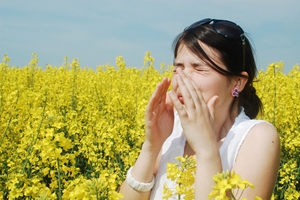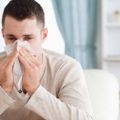
Flowers are starting to bloom, the days are getting longer and the weather is getting nicer, which can only mean one thing: Spring is here. While this increasingly warm season is a welcome respite from the cold winter months, it can mean a worsening of symptoms for individuals who are allergic to pollen. Depending on where you live, this allergen may already be prevalent in the air, causing itchiness, sneezing, stuffiness, watery eyes and other uncomfortable reactions.
In order to prepare yourself for the return of your seasonal allergies, you may want to consider some of the following:
Adjusting your schedule accordingly – Pollen levels are typically at their worst between 5 a.m. and 10 a.m., so you may want to consider moving any outdoor activities you engage in on a regular basis to later on in the afternoon or evening.
Cleaning your home – Your annual spring cleaning ritual is a great way to rid your home of debris that may have built up over time. Don't forget to wear a respirator mask when you're scrubbing and vacuuming to prevent particles from entering your lungs.
Making an appointment with your allergist – The earlier you begin treating your allergies, the better chance you have at gaining some relief when pollen is at its peak. Specialists may even have updated methods of combating these irritants. "There are newer treatments and combinations of therapy that may offer renewed hope for feeling better," Dr. Jordan Josephson told the Huffington Post.
Fortunately, there are other actions you can take to reduce the amount of triggers in their home. You may want to consider investing in a whole house air purifier, which can remove allergens directly from the air.









